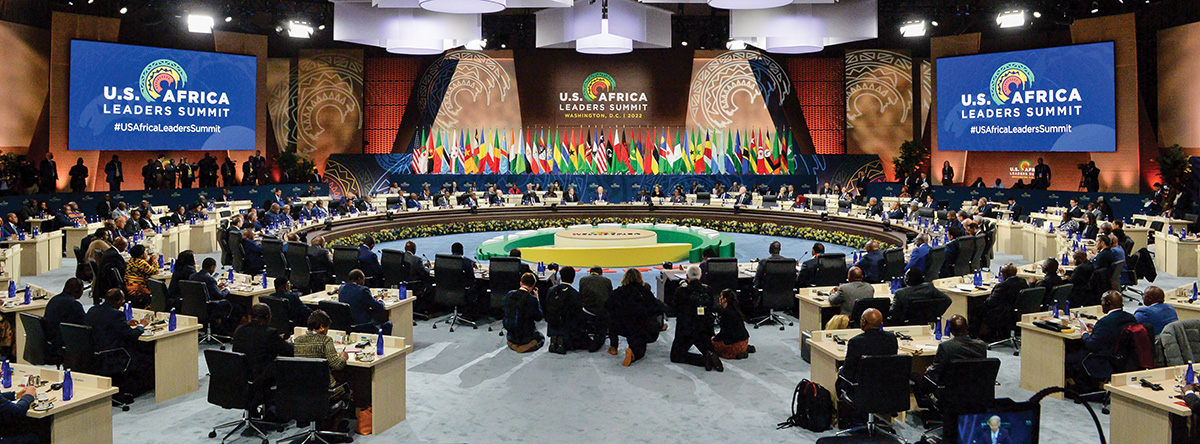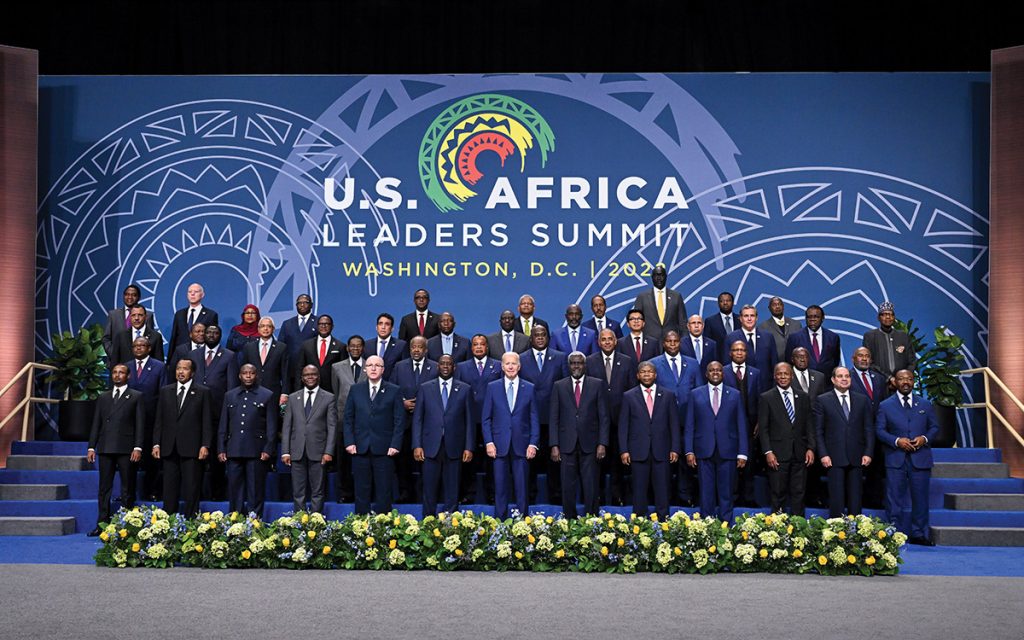
OPINION: President Joe Biden’s visit to Angola from December 2-4, 2024, underscores the United States’ commitment to fostering partnerships with Africa. This visit focuses on commercial infrastructure investments and collaborative solutions to shared challenges in the Southern African Development Community (SADC) region.
During his visit, President Biden will meet with Angolan President João Lourenço to discuss significant investments in Angola’s commercial infrastructure. The United States has committed nearly $2.5 billion through the Export-Import Bank for renewable energy projects in Angola. These projects aim to transform Angola into an energy exporter, boosting local economies, creating jobs, and providing sustainable energy solutions.
A key highlight of President Biden’s visit is the Lobito Corridor Project. This $5 billion investment aims to revitalize and extend the 1,300-kilometer Benguela railway line, connecting the Angolan port of Lobito on the Atlantic Ocean to the Democratic Republic of Congo (DRC) and, in its second phase, to Zambia. The project is expected to enhance regional trade, attract private investments, and promote sustainable development across various sectors.
The Lobito Corridor Project is significant for both Southern Africa and the United States. For Southern Africa, it promises to unlock the economic potential of the region by improving transportation infrastructure, facilitating the export of minerals from the Copper Belt, and fostering economic integration. For the United States, it represents a strategic investment in Africa’s infrastructure, aligning with broader goals of promoting stability and economic growth in the region.
The visit also emphasizes addressing shared challenges through collaborative efforts. Discussions will include strategies to improve global health security, agribusiness, and cultural heritage preservation. These efforts are crucial in building resilient communities capable of withstanding economic and environmental shocks.
It is also important to note The United States has a long-standing commitment to security cooperation in Africa. U.S. through the Africa Command (USAFRICOM) which focuses on building operational and institutional capacity among African nations. Countries such as Côte d’Ivoire, the Democratic Republic of the Congo (DRC), Madagascar, and Nigeria have benefited from U.S. security assistance. Additionally, the U.S. has supported the efforts of Benin, Cameroon, Chad, Niger, and Nigeria in the fight against Boko Haram. Southern Africa isn’t immune to terrorist activities, SADC can use this platform to seek Security Assistance from President Biden as a region, The growing terrorism threat in Southern Africa requires a comprehensive and coordinated response. Strengthening regional cooperation, enhancing international partnerships, and building local capacities are essential steps in addressing this complex challenge. It will be in the best interest of both SADC and USA to cooperate in fighting terrorism and terrorism related activities that include illicit financial flows, smuggling, human trafficking in the region.

Image: Ben Solomon / U.S. Department of State
In addition to security cooperation, the U.S. provides significant humanitarian support through the Department of State and USAID. In fiscal year 2021, USAID and the Department of State provided $8.5 billion in assistance to 47 countries in sub-Saharan Africa. This support includes improving access to health services, promoting democratic institutions, and fostering economic growth. General Michael Langley, Commander of USAFRICOM, has emphasized the importance of partnerships with African nations, highlighting the need for African-led solutions supported by U.S. expertise and resources.
Disinformation campaigns have caused significant health and humanitarian aid difficulties in countries like South Africa, Mozambique, and Zimbabwe. These campaigns have led to mistrust in aid organizations, hampering efforts to deliver essential services and support. For example, in South Africa, disinformation has fueled vaccine hesitancy, complicating efforts to control the COVID-19 pandemic. In Mozambique, false narratives about aid distribution have delayed critical food and medical supplies. Similarly, in Zimbabwe, disinformation has undermined public trust in international aid, affecting the delivery of humanitarian assistance.
President Joe Biden’s visit to Angola, despite being at the end of his term, holds significant importance for U.S.-Africa relations. While President Biden and incoming President Donald Trump may have different views, the core of U.S. policy towards Africa remains consistent. This visit underscores the United States’ ongoing commitment to fostering strong partnerships in Africa, focusing on vital commercial infrastructure investments and collaborative solutions to shared challenges.
The continuity in U.S. policy ensures that initiatives launched during President Biden’s visit, such as the Lobito Corridor Project and various security and humanitarian efforts, will likely continue under the new administration. This stability is crucial for maintaining and building upon the progress made in enhancing regional trade, security cooperation, and sustainable development across the continent. Taking President Biden’s visit seriously is essential for understanding the long-term strategic interests of the United States in Africa, which transcend individual administrations. It highlights the enduring partnership and the shared goals of promoting stability, economic growth, and mutual prosperity. c4445


